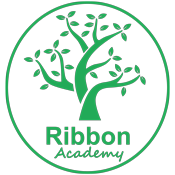At Ribbon we use the Sounds Write programme for Phonics supporting our youngest children to develop the skills and knowledge required to learn to read.
Sounds-Write is effective in teaching pupils to read, spell and write because it starts from what all children know from a very early age – the sounds of their own language. From there, it takes them in carefully sequenced, incremental steps and teaches them how each of the 44 or so sounds in the English language can be spelt.
The words used in the teaching process and the conceptual knowledge of how the alphabet code works are introduced from simple to complex, in accordance with the fundamental principles of psychological learning theory.
For example, at the start, simple, mutually implied (one sound, one spelling) CVC words (consonant, vowel, consonant) only are introduced.
Pupils quickly learn to read and spell words such as ‘mum’, ‘dog’, ‘jam’ and ‘sit’. When all the single-letter sound-spelling correspondences have been introduced and established, Sounds-Write initiates the concept that the sounds ‘f’, ‘l’, ‘s’ and ‘z’ can be spelt with the two letter-spellings ‘ff’, ‘ll’, ‘ss’ and ‘zz’, respectively.
As the programme progresses, the complexity of one-syllable words is carefully increased through a variety of VCC, CVCC, CCVC, CCVCC and CCCVC words, such as, for example, ‘elf’, ‘hand’, ‘swim’, ‘trust’ and ‘scrub’.
After this, pupils’ understanding of the concept ‘two letters – one sound’ is further developed through the introduction of the most common consonant two-letter spellings: ‘sh’, ‘ch’ and ‘th’, in words like ‘shop’, ‘chimp’ and ‘thin’, for example.
Finally, two, three and four letter spellings of the vowels are introduced and pupils are taught how to read and spell polysyllabic words, starting with simpler words (such as ‘bedbug’) and gradually moving to the more complex (such as ‘mathematical’).
All of this is taught within a well-structured, incremental and coherent framework based on the knowledge – both conceptual and factual (see below) – on which the alphabet principle and thus the writing system is based and the three key skills needed to enable learners to use the principle effectively.
Our approach teaches the conceptual understanding needed to become an effective reader:
- that letters are spellings of sounds: visual language is a representation of spoken language
- that a spelling can contain one, two, three, or four letters – examples are: s a t, f i sh, n igh t and w eigh t
- that there is more than one way of spelling most sounds: the sound ‘ae’, spelt as ‘a-e’ in ‘name’, can be represented as ‘a’ in ‘table’, ‘ai’ in ‘rain’, ‘eigh’ in ‘eight’, ‘ay’ in ‘play’, and so on
- that many spellings can represent more than one sound: ‘ea’ can be the sound ‘e’ in ‘head’, ‘a-e’ in ‘break’, or ‘ee’ in ‘seat’
Within this conceptual framework, we teach the factual knowledge required to become an effective reader and speller: the approximately 176 spellings that represent the 44 or so sounds in English, starting with the most simple one-to-one correspondences.
Reading and spelling also requires expertise in the skills necessary to make use of the alphabet code and pupils need to be able to:
- segment, or separate sounds in words
- blend, or push sounds together to form words
- manipulate sounds: take sounds out and put sounds into words
Sounds-Write provides opportunities for practising these skills on an everyday basis through the Initial Code, Extended Code and Polysyllabic Word programmes until pupils achieve the automaticity required for fluent reading and spelling.
To support the purposeful practise of reading to gain fluency children in Reception, Year 1 and beyond (if appropriate) receive decodable books that are inline with the Sounds-Write programme (Dandelion and Sounds-Write) and the sequence of teaching. Children are encouraged to read at home and at school. Our Reading Support Miss Robson listens to our lowest 20% of readers on a more regular basis, to support their confidence and fluency development.
Through phonics teaching we aim to support children to ‘Learn to Read’ supporting them to reap the benefits of ‘Reading to Learn’. Therefore throughout our reading and wider curriculum we offer:
- a wide range of class texts, written by a range of authors
- an exposure to a variety of text types both fiction and non-fiction
- familiarisation with poems and poets
- diversity of people, cultures and time periods
Each class explore their class book through daily reading sessions. These class books unlock learning opportunities in reading, writing and throughout the wider curriculum (where applicable).
Additionally, children throughout the wider curriculum ‘Story Time’ and text analysis is encouraged to support children to learn from quality texts and books. This provides further opportunity to:
- develop cultural capital and an understanding of the world we live in
- explore the works of a wider variety of authors
- engage in oracy activities
- learn from the adventures and lessons of characters through social stories
Once children at Ribbon are confident with the reading code and skills, we shift our focus to comprehension development through the use of VIPERS – which focus our reading practise on the essential skills to become a fully rounded reader. These skills include:-
- Vocabulary
- Inference
- Prediction
- Explanation
- Retrieval
- Summarising and Sequencing
From Year 2 (Spring term) through to Year 6 children receive a daily ‘Shared Reading’ lesson which provides our teachers the opportunity to model, guide and support the development of the VIPERS utilising their class book, alternative model texts, non-fiction texts and poetry. This variety provides the opportunity for application and depth of understanding.
To supplement our reading package we utilize both:
- Accelerated Reader (Year 1 – 6)
- Reading Plus (Year 3 – 6)
Accelerated Reader
Once children have been exposed to the majority of the phonetic code and have showcased retention through successful decodable reading, they progress onto the Accelerated Reader programme. The Star Reader Tests and teacher judgement is used to gauge the accurate level of books our children select from. through daily ‘Book Club’ and home reading children are to enjoy their selected book and complete the available quiz on completion to showcase their understanding. Children have access to our corridor Chromebooks when they are ready to quiz as well as logins at home. Reading success is celebrated in our Celebration Assemblies. Through pupil voice we gain an insight into the interests of our children to best replenish our stock appealing to our target audience – the children of Ribbon.
Reading Plus
The tool of Reading Plus provides isolated practise of essential physical development for reading such as; eye tracking, and guided speed trackers, to ultimately support the development of speedy, fluent readers with accuracy.

